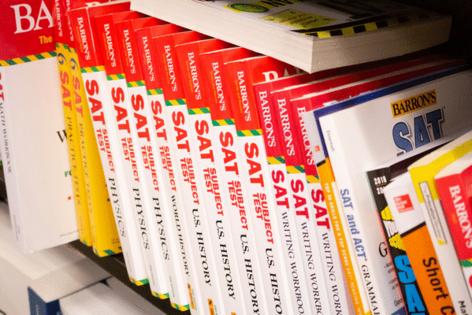Editorial: SAT, ACT scores predicts student success
Published in Op Eds
Here’s an SAT-style question that college administrators should be required to answer: What is the best predictor of a student’s academic success at an elite college?
A) Family income.
B) Skin color.
C) High school GPA.
D) Score on a standardized test, such as the SAT or ACT.
A new study from professors at Brown University and Dartmouth College found the answer is D. Their recent NBER Working Paper examined the academic records of students who attended Ivy League colleges, the University of Chicago, Duke, MIT or Stanford.
Before the pandemic, many colleges relied on standardized test scores from the SAT or ACT. But during COVID, every Ivy League school dropped its testing requirements in the name of “equity.”
Those tests are high-stress affairs. Some students hire tutors or take the tests multiple times. That’s because obtaining a high test score can help students earn admission to these competitive schools. The skills they learn there and the connections they make at a top school can improve their career trajectory.
Those colleges also have an interest in admitting the top students. In theory, their curriculum is rigorous, and they should grant admission to students capable of succeeding. The brightest students may also be the most successful, raising the university’s prestige and increasing its potential for large alumni donations.
That’s where standardized testing shines. “SAT and ACT scores have substantial predictive power in forecasting students’ academic performance,” the study found.
That was true even controlling for variables such as race or family income. Students with a top score on one of those tests “achieve a first-year college GPA that is 0.43 higher on a 4.0 scale” than students earning a score in the 75th percentile of national results. Students with lower scores on standardized tests were also 42 percent more likely to struggle academically.
Even better, “SAT and ACT scores exhibit no calibration bias, in that students from different backgrounds but sharing the same test scores achieve similar average levels of academic success in college,” the study noted. So much for complaints about standardized tests being biased.
Grade-point average, another potential measure of achievement, didn’t perform as well. It “has relatively little predictive power for academic success during a student’s first year,” the study found. That makes sense. Grading varies dramatically by school, and grade inflation is rampant.
In pursuit of equity, many woke colleges, including the University of California system, eliminated their standardized testing requirements. In contrast, several Ivy League schools have reinstituted their testing requirements. This study shows why that’s a wise decision.
______
©2025 Las Vegas Review-Journal. Visit reviewjournal.com.. Distributed by Tribune Content Agency, LLC.




























































Comments